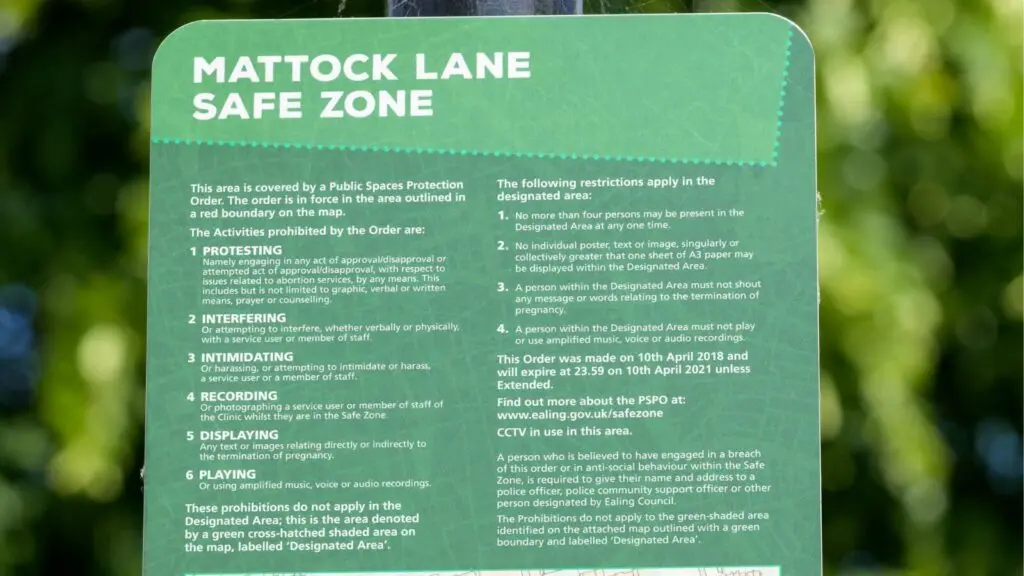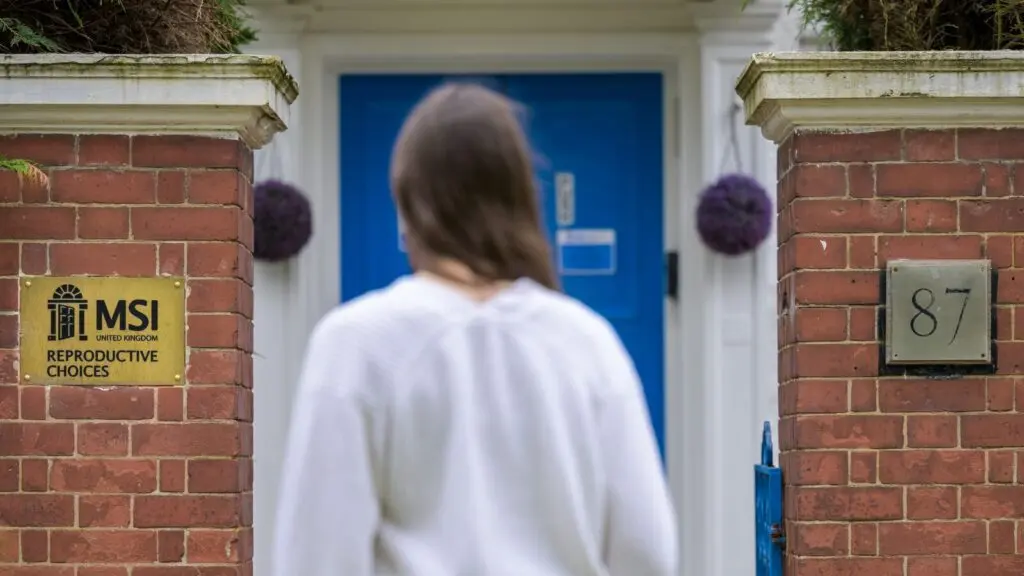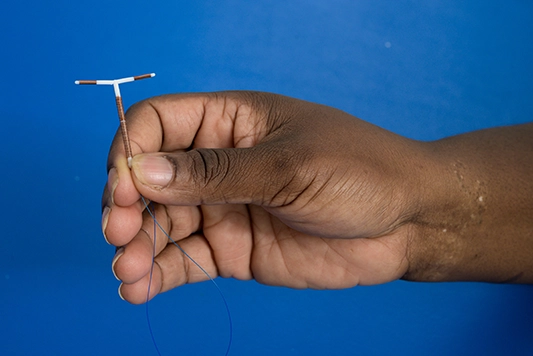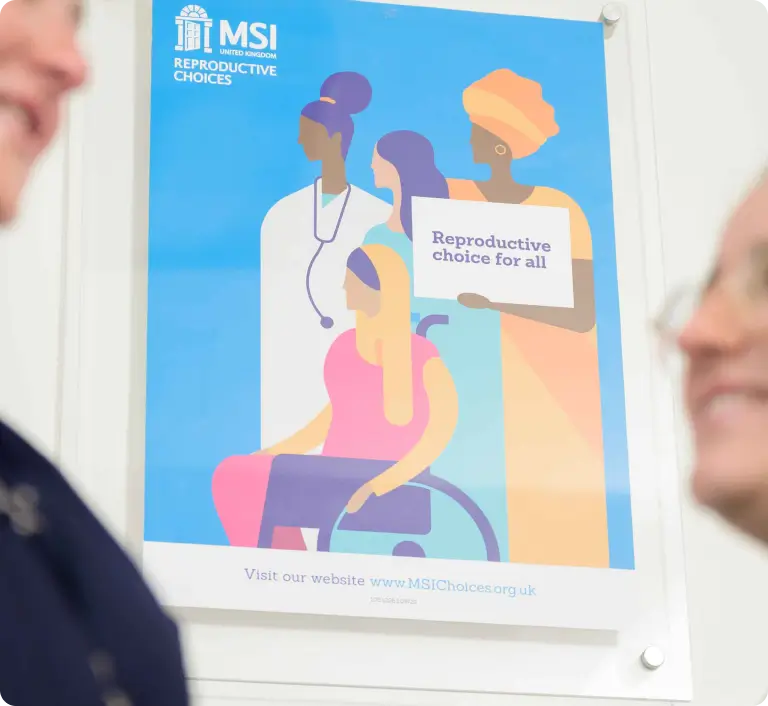With Safe Access Zones officially implemented outside abortion clinics in England and Wales, Louise McCudden – UK Head of External Affairs at MSI Reproductive Choices – reflects on the journey to national legislation and an end to abortion clinic harassment.
Abortion clinic harassment takes many forms. Over the years we have seen everything from rape survivors told they will go to hell, to groups holding up judgmental, misleading signs, to anti-choice groups with cameras.
What these behaviours all have in common is that they are designed to obstruct, influence, and distress anyone who needs or chooses abortion. The tactics vary, but what we hear from our clients is that while these activities do nothing to change their minds about continuing their pregnancy (by the time somebody attends a clinic or hospital, they have usually made up their mind), it can have a major emotional impact on them. Sometimes it has a clinical impact too, as it can drive people to delay their appointment, potentially reducing their treatment options.
The journey to Safe Access Zones
We have been advocating for Safe Access Zones for years, both at a local and a national level. Our clinic in west London was the first local Safe Access Zone in the country, introduced by Ealing Council following a period of advocacy from MSI Reproductive Choices UK, other providers, and grassroots groups like Sister Supporter. Other local authorities have since introduced Safe Access Zones to protect clinics, but this created a postcode lottery. 100,000 women a year (that’s 2000 women a week) accessed abortion care from a clinic that had been subjected to anti-choice activity.
Fortunately, there were a number of parliamentarians who supported us, from a range of political parties including Labour, Conservative, Liberal Democrat and Green. Labour MP Rupa Huq, representing Ealing Central and Acton, was particularly aware of the need for a change in the law thanks to her ongoing support for our Ealing clinic and her tireless work supporting the local Safe Access Zone. Stella Creasy MP (Labour) introduced an amendment in the House of Commons which Baroness Liz Sugg (Conservative) championed through the House of Lords. It was signed into law last May – but sadly the fight was not yet over.

Delays, decisions, and democracy
Despite Safe Access Zones now being passed into law, the government at the time did not ‘commence’ the legislation, which meant it couldn’t be enforced. (To understand more about how ‘commencement’ of a new law works, click here.) Towards the end of last year, the Home Office published draft guidance for the police on implementing Safe Access Zones which was completely at odds with the legislation that has been democratically passed by Parliament, and which would have created major loopholes, allowing many instances of harassment to continue. The government put this guidance out to a public consultation, and MSI Reproductive Choices UK was among the many organisations that expressed profound concern about the draft.
General election
In July 2024, there was a general election, and the Labour party won. Jess Phillips MP was appointed Minister for Safeguarding and Violence Against Women within the Home Office, and as a long-time supporter of Safe Access Zones (and of reproductive rights in general), she announced that the legislation would come into force on 31st October.
Everyone deserves safe, confidential healthcare
We know that people have a range of different views about abortion. There are plenty of places to share those views without gathering right outside an abortion clinic. The fact is, when someone enters an abortion clinic, you have no idea what has been going on in their life. They may have been sexually assaulted. They may have an abusive partner, using pregnancy to control them. They may be at risk of misogynistic or honour-based violence. They may have received a medical diagnosis which forced them to make unexpected, heartbreaking decisions, like whether to continue a pregnancy at risk to their own life, possibly ending in a stillbirth.
And, of course, they may have chosen abortion because they simply feel emotionally unable to cope with pregnancy at this point in their life. No matter the reason, nobody deserves to be harassed this way.

What will be covered by the law?
If the intent is to influence or obstruct abortion access, or if the impact is to leave people feeling harassed, alarmed, and distressed, the behaviour in question will fall foul of the law, and rightly so. Regardless of whether these groups self-describe their actions as protest, prayer, vigils, or offering support, what we hear from our clients is that they experience these actions as harassment.
After all, our nurses and midwives already offer support and choice; anti-abortion campaigners are trying to intimidate and coerce into a particular outcome, and they frequently shared misleading, even false information in the hope of doing so.
Bold signal in support of gender equality
At a time when we are seeing rollbacks on reproductive rights and on gender equality in general, most notably with the repeal of Roe v Wade in the United States, it couldn’t be more important that the UK government is on the right side of the battle lines. That’s why we are so pleased that the UK government is enforcing this legislation. By standing with abortion seekers and frontline reproductive healthcare workers in the face of abuse, they are sending a strong message not only to women and girls here in the UK, but to the rest of the world.











































